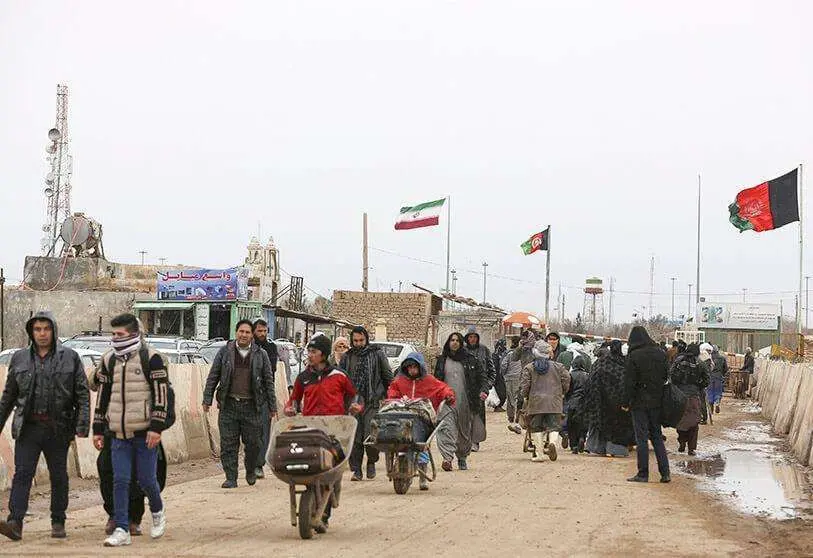Afghan refugees: Afghanistan's conflict will spill over to Europe

The "baton" of the conflict in Afghanistan is being passed from US to European hands, but in this case, the two powers seem not to be on the same team. The withdrawal of US troops in the country and the advance of the Taliban will pose a challenge for European countries that will have to take in Afghan "refugees" leaving the country in the hope of survival. US efforts to help Afghans fleeing their country appear to be insufficient, and it will be the EU that will be next responsible for receiving these Afghan refugees.
Following the announcement of the withdrawal of US troops, the US has pledged to provide asylum and assistance to Afghans who helped the army fight the Taliban. The US government is already processing thousands of visa applications from interpreters, drivers and other Afghans who helped its soldiers and want to move to the United States with their families, and aims to help them leave Afghanistan before the end of August.

According to EFE, the State Department announced a new programme, known as "Priority 2", which includes employees of US contractors, local embassy staff or US military bases, as well as interpreters for the US government, US troops or NATO troops. It is also open to Afghans who worked as journalists or other employees of a US media outlet, as well as aid workers for US non-governmental organisations.
However, there are limitations to the programme: Afghans who wish to leave the country to begin the asylum process must do so on their own, without US assistance. Despite having expanded the programme to take in refugees from Afghanistan due to Taliban violence, it is not clear that these efforts will be sufficient to bring Afghan citizens to safety. The question is: what will happen to the remaining Afghan civilians who suffer from terrorist occupation and need to flee the country?

Some countries, such as Turkey and Iran, have taken in refugees, but their stay in these countries has an expiry date. If they are expelled, they have to seek asylum in other countries that do not expel them.
Six EU member states have warned the bloc's executive not to halt deportations of rejected Afghan asylum seekers arriving in Europe despite significant gains by Taliban militants in their country. Greece's migration minister, Notis Mitarachi, said: "The EU is not prepared and does not have the capacity to deal with another major migration crisis," adding that "it would be a call for more people to come to the EU". Austria, Belgium and Denmark have supported Mitarachi in his proposal to deport migrants. However, not all EU positions are equally rigid: Germany and the Netherlands have finally decided not to deport Afghan refugees for the duration of the war.

Since 2015, around 570,000 Afghans have applied for asylum in the EU, and 44,000 in 2020 alone. Many EU member states are concerned that developments in Afghanistan could trigger a repeat of the European migration crisis of 2015/16 when the chaotic arrival of more than a million people from the Middle East disrupted security and welfare systems, particularly in countries such as Greece.
Instead, according to EuroEFE, "the European Commission does not fear that the complicated situation in Afghanistan, where the Taliban have captured several provincial capitals in less than a week, will lead to a new migration crisis on the scale of that of 2015 in the wake of the Syrian crisis, and considers the scenario in the Asian country to be difficult but not desperate".

The Commission has confirmed receipt of the letter from the six countries, adding that it would respond when ready. Asked whether it considers Afghanistan to be a safe country to which asylum seekers can be returned, a Commission spokesperson replied that it is up to member states to make that judgement. The issue is expected to be taken up at a crisis meeting of EU home affairs ministers on 18 August, which originated mainly to discuss an increase in illegal border crossings from Belarus to Lithuania, Poland and Latvia.
However, the EU does fear, to a greater extent, a rapid deterioration of the humanitarian crisis that the country was already experiencing before the recent Taliban offensive, with some 18.4 million people (45 per cent of the population) in need of humanitarian assistance by early 2021.








